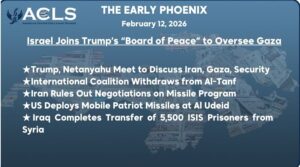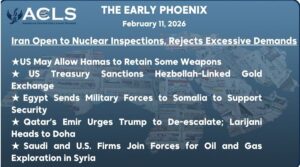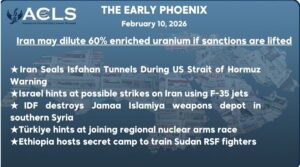By Rania Kisar
After losing the military advantage in the Ukraine war, Vladimir Putin seeks new avenues to exert influence over his Western opponents. In this intricate geopolitical chess game, North and Central Africa have transformed into critical strategic chessboard pieces for the Russian leader.
Everyone watched as the master of the Kremlin, who orchestrated the Russian-African summit in St. Petersburg, took memorial photos with African leaders.


Meanwhile, Niger’s president, who didn’t respond to the Russian summons, found himself imprisoned and ousted by Russia-supported generals.
For Moscow, the Niger coup is a way to strike a blow against French strategic interests. Since its formal liberation from France in 1960, Niger has experienced four coups, the most recent occurring in 2010 when President Mamado Tanga was ousted. According to the Russian-supported putschists responsible for the latest coup against Mohamad Bazoum, this coup aimed at wresting Niger from French hegemony.
Similarly, during the St. Petersburg summit, Wagner group leader (and would-be coup leader) Yevgeny Prigozhin described the coup in Niger as a national struggle against colonialism. Crowds of pro-coup demonstrators in Niger obliged this view by marching with the Russian flag while burning French flags and even attempting to burn the French embassy.
Once a staunch French ally, Niger now joins a belt of Russian-influenced countries spanning North and Central Africa. Using the Wagner Group as its instrument, Moscow has already gained dominant influence in Mali, Burkina Faso, Libya, and Sudan. And per a leaked document unveiled on July 26, 2022, by Al Jazeera, Russia was plotting to build six military installations across Egypt, West Africa, Eritrea, Madagascar, Mozambique, and Sudan, while forging robust military relations with Burkina Faso and Mali.
Arms sales have brought Moscow closer to many African capitals than ever before: Russia’s military exports to Africa surged by 44% between 2017 and 2021, making it the foremost armament supplier to the continent, even surpassing China in terms of arms exports.
The increasing military connections between Russia and Africa provide Putin with the potential to establish a network of military alliances on NATO’s southern boundary. In a nuanced approach, Putin is also utilizing the geographical aspects of Africa to develop diverse outposts that pose substantial challenges for Europe. Additionally, exploiting his influence in Africa serves as a method for Putin to incite illicit migration, potentially overwhelming the European continent and aligning with his hidden objectives. Furthermore, Putin garners political advantage through his ability to sway African nations’ voting decisions within the United Nations.
Most of all, Russia’s military footprint in North and Central Africa gives Putin access to those regions’ precious natural resources while steadily blocking Europe’s access to the same resources. Africa is a luring prize, possessing 10% of the globe’s oil and 8% of its gas reserves. The continent boasts 80% of the world’s platinum, 40% of its diamonds, 20% of its gold, and 20% of its cobalt metal. And with enormous renewable water resources and 65% of the world’s agricultural land, Africa’s significance is undeniable.
Across a multitude of nations, Moscow has steadily expanded its influence within Africa in the past few years:
- The Central African Republic, despite its population’s poverty, has emerged as a crucial sphere of influence for Russians drawn by its mineral wealth. Wagner’s arrival in 2018 involved backing the government in suppressing a civilian uprising that morphed into a civil war after 2012. During this conflict, Wagner secured logging rights and control over gold mines. Recently, Wagner has deployed additional paramilitary trainers to bolster government authority.
- In Mali, the Kremlin utilized Wagner operatives to broaden Russian influence. This effort was financed by Mali’s government injection of $200 million to aid in countering alleged extremist militants, drawing parallels with the Syrian crisis, during which Wagner militias frequently engaged in war crimes and crimes against humanity. In the meantime, incidents of terrorism within the nation have surged by over 25 percent.

- Recent history in Burkina Faso, marked by a coup a year ago, echoes the ongoing events in Niger. Almost as if illustrating this link, Russian backers in Burkina Faso and Mali have stated their preparedness to defend Niger against rumored Western military intervention intended to reinstate the deposed President Muhamad Bazoum. Amplifying the tension, militants in Burkina Faso have declared a halt in uranium exports to France.

The ongoing query revolves around the potency of these armed groups bolstered by Russian assistance. Experts unanimously agree that the combined strength of these factions within those countries is notably inferior to that of ECOWAS. Further clarification reveals that their proclamation of preparedness to stand alongside the Nigerien putschists in combat amounts to nothing more than deceptive propaganda.
- Russian influence is also conspicuous in Libya , Algeria, and Sudan. In the latter, Wagner is accused of collaborating with the Rapid Support Forces in their conflict against the Sudanese army. While the Russian private military group denies any presence in Sudan, Western sources confirm Wagner’s unrestricted mining rights in gold-rich regions. A comparable situation is developing in Libya, where Russians are established across extensive portions of the country’s southern territories. The Algerian stance can be attributed to concerns about a potentially significant influx of displaced individuals. At the same time, the second factor lies in the intrinsic alignment between the Algerian and Russian governments. This position taken by Algeria also underscores the extent of Russian influence on the African continent. However, this stance places Algeria in a delicate predicament with its secondary ally, France, mainly if a military intervention would be pursued to reinstate the Nigerian president.
- Leaked US intelligence documents have revealed Russia’s intentions, orchestrated by Wagner, to incite an insurrection in Chad. This aligns seamlessly with its overarching strategy of establishing a network of military installations across Africa.
In his address at the Russian-North African summit in St. Petersburg last month – an event ostensibly focused on bolstering economic ties – Putin discussed the utilization of sanctions to obstruct the UN-backed Black Sea grain initiative. However, he committed to providing free grain to several African nations, including Burkina Faso, Zimbabwe, Mali, Somalia, the Central African Republic, and Eritrea. This seemingly altruistic gesture involves each country receiving between 25 and 50 thousand tons of grain. Additionally, Putin revealed the forgiveness of a substantial $23 billion debt owed by these African nations while expressing Russia’s readiness to supply Africa with complimentary weaponry to enhance regional security. He emphasized collaboration with African law enforcement and intelligence agencies. On the commercial front of the summit, major Russian companies showcased their products to the 49 African nations in attendance. These offerings included weapons, military equipment, helicopters, agricultural machinery, and foodstuffs.
The summit has ignited considerable enthusiasm among Africans as they remain hopeful about reaping benefits from Russian oil projects, alongside gaining technical expertise for peaceful nuclear energy production. Egypt serves as an illustrative example. During the summit, Visco, a prominent Russian transportation company with a significant maritime fleet, established a noteworthy agreement with President Sisi of Egypt. Andrei Severilov, Chairman of Visco’s Board of Directors, introduced a direct marine commercial container service that seamlessly connects Egypt’s Damietta port with Russia’s Novorossiysk port. This shipping pact holds the potential to serve as a pivotal conduit linking the economies of Russia and Africa, thereby extending Russia’s economic influence across the Maghreb and North African regions.
The relentless efforts of Putin’s Russia to establish a firm foothold militarily, economically, and politically on Europe’s southern borders mirror its successful embedding in Syria to wield influence across the eastern Mediterranean. While acknowledging the importance of Mediterranean trade ties for Russia’s overall prosperity, it becomes evident that Putin’s aspirations in Africa extend beyond economic interests, hinting at his ambitions for dominance over Europe.
Although the sustainability of these ambitions in the face of a potential military setback in Ukraine remains uncertain, the relentless growth of Russian influence on the continent is unmistakably gaining momentum with each passing month. As European powers invest their attention and resources in thwarting Putin’s moves in Ukraine, a more pressing inquiry emerges: do they possess the capacity to halt his intricate strategic maneuvers across Africa adeptly, or will these calculated maneuvers persist unopposed on the geopolitical chessboard?
August 7, 2023.














